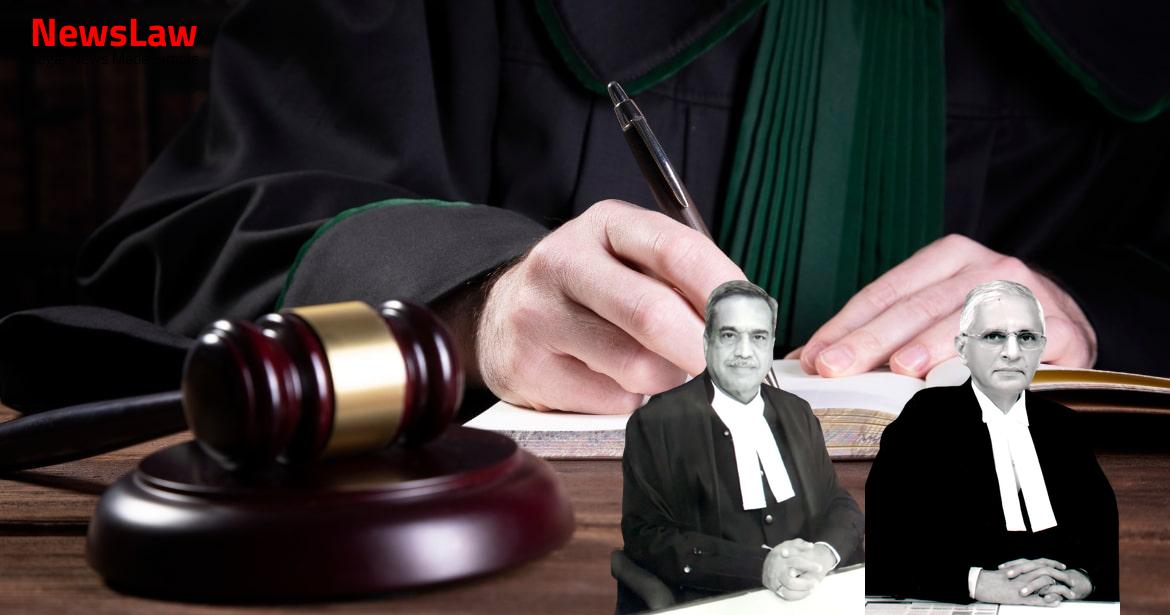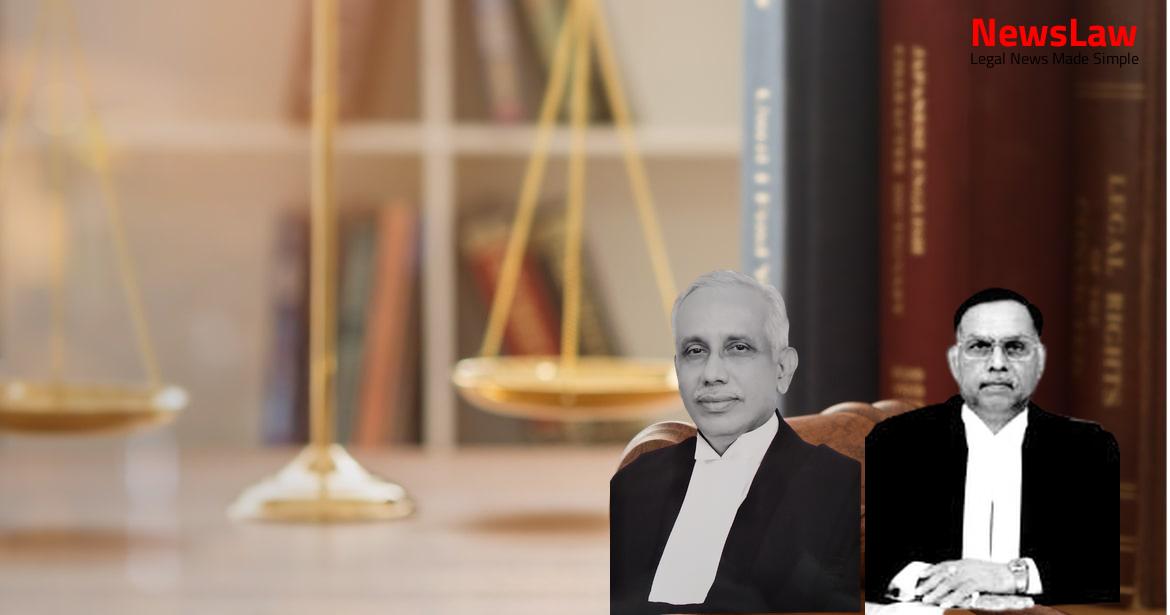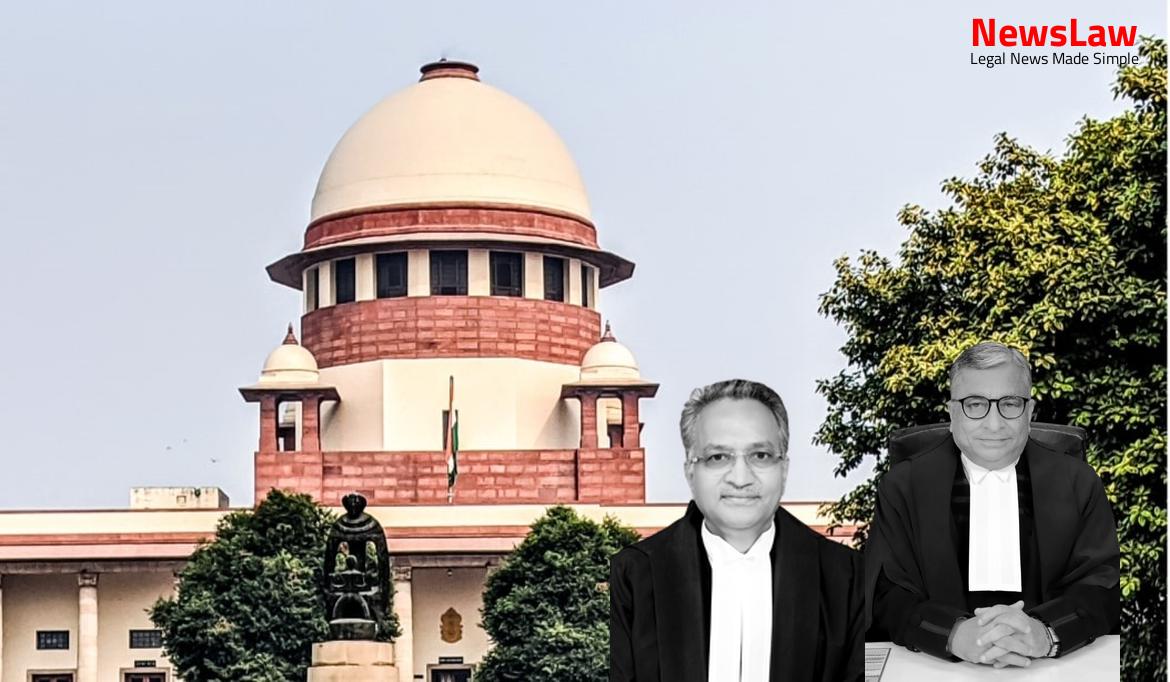Delve into the intricate legal analysis provided by the court regarding admission and decrees in a contentious ownership dispute case. The recent judgment sheds light on the complexities of determining ownership rights and the significance of clear admissions in legal proceedings. Follow along to understand how courts handle such intricate legal matters and the implications of decrees based on admissions in civil cases.
Facts
- The original defendants are aggrieved by the High Court’s decision to allow the civil revision petition and set aside the Trial Court’s order, leading to a decree of eviction.
- The Trial Court previously dismissed an application stating that defendant No.2 did not admit to the plaintiff’s ownership and their tenancy in the property.
- Defendant No.2 claimed ownership of the property and mentioned paying Rs.19 lakhs to the plaintiff in the written statement.
- Defendant No.2 had also filed a suit against the plaintiff for specific performance of a contract related to the property.
- The defendants feel the High Court erred in passing a decree based on admission under Order XII Rule 6 of the CPC.
- The respondent filed Civil Suit No. 805 of 2018 against the appellants for possession, injunction, and mesne profit regarding a property in Delhi.
- The plaintiff claimed to be the lawful owner of the property since 15.01.2013 and stated that defendant No.1 was the tenant who sub-let the property to defendant No.2 without permission.
- After the Trial Court’s order dated 27.07.2019, the plaintiff filed a revision petition before the High Court against the dismissal of the application under Order XII Rule 6 of CPC for passing a decree on admission.
- Defendants filed a detailed reply under Order XII Rule 6 of CPC, opposing the plaintiff’s application for a decree on admission.
- Plaintiff then filed an application before the Trial Court seeking a decree on admission based on the defendants’ admission in the written statement that the plaintiff is the owner and defendant No.1 is the tenant.
Also Read: Judicial Review of Delayed Writ Petition
Arguments
- The High Court did not consider the lack of clear admission by the defendants that the plaintiff is the owner and defendant No.1 is the tenant.
- Without clear and unambiguous admission, the plaintiff should not be entitled to a decree on admission.
- Reference is made to the case of Himani Alloys Ltd. v. Tata Steel Ltd. to support this argument.
- Defendant No.2 claimed to be the absolute owner of the property, having paid Rs.19 lakhs to the plaintiff under an agreement to sell.
- Defendant No.2 claims ownership of the suit property based on the agreement to sell.
- A substantive suit filed by defendant No.2 for specific performance of the contract to sell is pending, with an injunction in her favor.
- The respondent’s counsel opposes the present appeal.
- Defendants’ written statement contains admission that the plaintiff is the owner, despite the agreement to sell not conferring ownership.
Also Read: Interpretation of Statutory Limitation under Section 263(2)
Analysis
- Defendant No.2 has filed a case for specific performance of contract, claiming ownership of the suit property.
- Defendants claim to be the owner, but plaintiff filed suit for possession, injunction, and mesne profit asserting ownership.
- Defendant No.2 cannot be considered the owner until the suit for specific performance is decided.
- In the written statement, defendants admit plaintiff’s ownership and defendant No.1’s tenancy.
- Defendants argue they are the actual owners of the property and claim plaintiff is trying to grab their money.
- The ownership dispute centers on the agreement between the parties and possession of the property.
- Defendant No.2 claims ownership and possession without a decree for specific performance or sale deed in her favor.
- Until the suit for specific performance is resolved, plaintiff remains the owner and defendant No.1 the tenant.
- The High Court’s decree on admission under Order XII Rule 6 of CPC is considered appropriate in the given circumstances.
- The decree passed by the High Court is subject to the outcome of the pending suit filed by defendant No.2 against the plaintiff for specific performance.
- Any injunction granted by the Trial Court in favor of defendant No.2 in the specific performance suit remains in effect unless modified by the Trial Court.
- If defendant No.2 succeeds in the specific performance suit, necessary consequences will follow, and the plaintiff will have to abide by the decree passed in that suit.
- Until the specific performance suit is decided in favor of the defendants, the plaintiff remains the owner, and defendant No.1 remains the tenant.
- Defendants’ admission regarding the ownership of the plaintiff and the tenant status of defendant No.1 is acknowledged by the court
Also Read: Legal Analysis on Conviction Based on Sole Testimony of Prosecutrix
Decision
- Based on the observations made in the earlier paragraph, no order as to costs is to be imposed in this case.
- The appeal is unsuccessful and the decision of the High Court is upheld.
Case Title: MOHD. RAZA Vs. GEETA @ GEETA DEVI (2021 INSC 609)
Case Number: C.A. No.-006098-006098 / 2021



